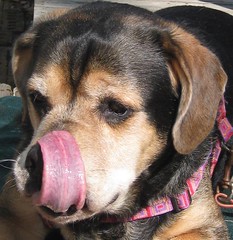My heart beats too fast and my hands shake when I think back remembering all the hospital admissions, the doctors, the pills, God… the pills! As I write, my gut feels like it’s being ripped apart. What if I made a mistake?
What if I made such a huge mistake that my only beloved son shall never forgive me? And if he does forgive me, has my mistake(s) ruined some of his life already? Has it already carved out part of who he is?
I just don’t know what is right. I don’t know what to do.
Join a group? There’s pretty much only one to choose from, which is through NAMI.
“Forget his liver,” I remember the young psychiatrist telling me. Was she suggesting that I’m neglecting my son by not neglecting his liver, I wondered. Sometimes psychiatrists think in strange ways.
“We can treat liver disease, diabetes and Tardive Dyskenesia,” the young psychiatrist said, “but we can’t treat schizophrenia without antipsychotics.”
That part about treating liver disease, well, I don’t think so.
My son’s liver panel always changes when he takes the type of medications recommended by psychiatrists. His family physician told him, once in front of me, “never take antipsychotics again.” He told us that they would damage his liver.
In response, my son’s ACT team social worker and a psychiatric intern at the hospital told me that we should get a new family doctor.
“You must go against your gut,” I’ve been told by professionals in the psychiatric community. “You must abandon everything you understand as a mother in making decisions to advocate for treatment,” a well-respected social worker once said to me.
“Treatment,” ultimately can mean forced injections. The social worker added that if she was a parent in my shoes, that she truly didn’t know what she would do.
“We’ll commit him for not taking medicine and keep him there until he gets so tired of it he will do anything to get out, even accept regular injections of anti-psychotics. We’ve had to do this many times with patients like your son — who are consistently non-compliant in taking their meds,” his psychiatrist has suggested.
“He wouldn’t have rehabilitation there,” I told the psychiatrist after she threatened to send him there if he, “made one wrong move.” My son is not a criminal. He gets sad and lonely and out of sorts. He isn’t out breaking the law.
The doctor had a bad attitude and let her personal feelings get too involved. She was angry because the day before my son had gotten out of a car in town, instead of going to his apartment, while riding with one of the team’s social workers. He’s an adult and can get out if he wants to whether anyone likes it or not.
“The only thing he would be able to do up there since the psychiatric rehabilitation unit is full would be sit in their community room all day, watching television with patients who are much worse than he is,” I told her. She reminded me again that this was an effective technique to get some patients to decide to take medication.
I feel like I’ve had to give my son over to the enemy. I feel like I agreed to join them too — but never with my whole heart or without the ongoing feeling that there must be a better way to do things than the way our modern-day psychiatry does them.
I stopped going to the support groups because there is a collective attitude that supports denying another person’s human and civil rights.
I once told my son’s psychiatrist about research suggesting that people with diagnoses, such as schizophrenia, can recover. She hadn’t heard about the studies nor had she ever read anything about treating schizophrenia in ways outside of antipsychotic medication. Personally, I find it disturbing that she’s been a psychiatrist for more than twenty years, yet hasn’t taken time to read about other forms of treatment.
We need an alternative. My son and I, and possibly many other families, need people to join an exploration in healthy ways to treat “mental illness” and we need to start a conversation about recovery.
“What causes schizophrenia?” someone asked a famous psychiatrist who was speaking at a meeting I attended.
“Nothing,” the doctor replied. “Nothing and everything causes it.”
I don’t have the answers. I do believe that if we had places where we can find what a former professor of mine called, “The Three Ms’,” that healing could happen. “Meaning, Mastery, and Membership,” he called them. “People will go crazy without these things,” he said to our class one day.
Thank you for visiting Dogkisses’s blog.
Related articles
- The Patient Patient (dogkisses.wordpress.com)
- Taking stock of schizophrenia (bbc.co.uk)



























Posted by abellve on December 15, 2009 at 3:39 AM
Hello, DK. I am heartbroken reading about your son and all of the stonewalling you face from the established MH system. I can only imagine that he knows you’ve done your best for him with the options made available.
First and foremost, he is a human being entitled to basic human rights. No behavior, no illness can take that away. Unfortunately, the way we’ve allowed things to go, a system can. It’s a sorry enough situation when someone can *ask* you to sacrifice your physical health for their idea of a shot at mental health, so much worse when they don’t have to ask at all.
Many are in complete denial about drug free recovery, probably because it’s not cheap and easy — but no one ever said something as precious as health and dignity could be had cheaply and easily.
You’re probably familiar with the movie, A Beautiful Mind. The truth is that John Nash continued a full life without psych drugs but they changed his story, fearing people might see his success and go off meds. Imagine that — making a biography and changing the ending to seem like drugs were his saving grace and not his own actions and support from the people who loved him. What a sad statement that even truth is secondary to their method. He’s not the only one by far but perhaps the most prominent in a sense. The seemingly rare cases are only rare because you have to evade an oppressive system to have a shot at the kind of recovery that’s not an assault on your body. http://bipolarblast.wordpress.com/2009/12/09/interview-with-john-nash/
I wish you both well. There are options and regardless of what the past has done and at whose hands, every day of acting toward the situation with health, dignity and respect is a step on a path worth traveling.
LikeLike
Posted by abellve on December 16, 2009 at 4:04 AM
When I said, “Many are in complete denial about drug free recovery…” I meant MH professionals, just to be clear. I certainly wasn’t talking about you. Your son is blessed to have you on his side.
LikeLike
Posted by dogkisses on December 16, 2009 at 9:11 PM
abellve— hi! Thanks so much for the thoughtful comment. I am not sure my son realizes that I have been here all along fighting for his rights. Sometimes I am so peeved at him I feel like giving up but then I get some sleep and realize that I will always fight for his rights as long as I’m living, even if it is not recognized. Psychiatrists have indeed struck me as being in denial, except for the one who was at the hospital and told me that the drugs would hurt my son worse than the disease. I don’t know if you remember reading that part but he was like a piece of heaven for me. I know about John Nash. I was at a support group once with a team of folks who were working with my son at the time. I mentioned this about Mr. Nash and was asked by the leader not to mention that movie ever again in their support group or around any of their “consumers.” I never went to another meeting and they kicked my son out of their group saying he was a bad influence on the others b/c he spoke of side-effects of antipsychotics. They said that talking about that movie might encourage the young people who were diagnosed with schizophrenia to stop their medications. I think it is horrible that they don’t think those young adults are intellectually capable to learn about John Nash’s story on their own. It is like not telling a young woman how pregnancy happens.
I think most psychiatrists will say anything and hold back anything in order to get a person to take the meds. I don’t like this.
Thank you for your respect. I realize that the choices I have made have been from love and deep concern for my son’s well being. I feel very good to be communicating with others about this. I am looking forward to the new year and one reason is so I can say, “that was last year.”
Thanks again and have a blessed day.
LikeLike
Posted by Michelle Jadaa on December 13, 2009 at 4:11 AM
Most of the world geniuses had some kind of mental illness.
Having said that with any illness theres a balancing act of side effects to illness symptoms…even with fibromyalgia.I choose not to take narcotics for pain ,ive even cut back on my muscle relaxant during the day,i have more pain but my brain is clearer and im not as exhausted although im still not “normal”.
is there a different med combo\strength he could try?
He is so lucky to have an advocate as devoted as you!!!
LikeLike
Posted by dogkisses on December 13, 2009 at 5:32 AM
Hi Michelle, Yes it is true about the geniuses but I’d personally rather be dumber than a rock than fight a mental illness. Since I’m not, as I too struggle with serious depression and drug sensitivity for it I must find other ways to heal. My son however simply doesn’t want to take antipsychotics, at least not at this time. Sometimes he takes them and I agree too about the balancing of side-effects. I think his doctor should actually have visits with him on a regular basis to talk about medications but his ACT team does not work this way. Sigh… Thanks for complimenting my devotion. I must go right now as I am to meet him because he has a date! And he needs some money. So I get to feel a bit like a normal mom today.
LikeLike